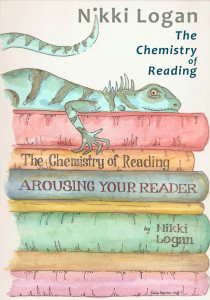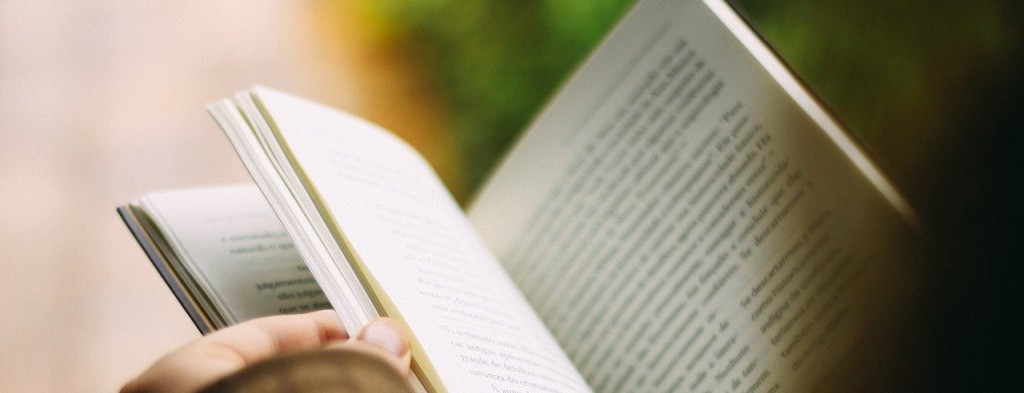
Last week I was at the UK’s Romantic Novelists’ Association conference, and there was plenty going on – old friends to meet up with, cyber friends to get to know in the real world, and new friendships to make. I had a brilliant time, but a lot of it was intense. Usually I spend most of my day alone with just me and my dog. I find being in the company of hundreds of other people, for a full weekend, quite a strain. At the end of the day, no matter how tired I am, I absolutely have to spend half an hour or so unwinding with my book, otherwise my head’s buzzing and I can’t sleep.
For a long time I’ve thought I may actually be addicted to reading. You can take anything I own – the tea bags, the wine, the biscuits – but GET AWAY FROM MY BOOK. And STAY AWAY FROM MY BOOK. (Yes, it’s that bad :) )
So, I was interested to hear what author Nikki Logan had to say in one of our sessions, about the chemistry of reading. Nikki is the president of Romance Writers of Australia. She was a great speaker, and I finally discovered that, yes, addiction to reading is an actual thing!
Here’s the science bit, written from my layman’s perspective. There are chemicals floating around in our brain that perform various different functions. Dopamine is a motivator chemical that helps endurance and focus; norepinephrine is released in response to stress, and makes our hearts beat faster and our palms sweaty; serotonin is the feel good chemical; and oxytocin/vasopressin are bonding chemicals for emotional connectedness (oxytocin levels are high in new mums, for example).
A combination of all these chemicals helps keep the brain aroused and focused. Too much arousal means we’re stressed or frightened. Too little means we’re bored. Nikki Logan suggested that people who love books are using reading to re-adjust their arousal levels up or down to the perfect level. This makes sense to me. I hate being bored, and the invention of the e-reader is a godsend. Now, wherever I am – on a broken down train, waiting at a bus stop, in the dentist’s waiting room – I can pull my e-reader out of my bag and have something to read.
I don’t just read when I’m bored, though. When I’m stressed, I find reading romances relaxing. The guaranteed happy ending provides a rush of dopamine and serotonin, and my arousal levels go down.
There’s no denying that a really good romantic ending provides an emotional rush. We’ve all experienced that ‘aah!’ feeling when a novel ends happily. Just before the happy ending, there’s usually a black moment. Something will happen that makes us feel anxious – will they, won’t they? How on earth is this going to end? Our moment of anxiety makes the dopamine rush all the stronger when it finally happens.
If you finish a novel with a feeling of satisfaction, you’ve had a successful dopamine experience. Serotonin is associated with compulsion/obsession, and this, in conjunction with dopamine, makes our bodies strive to repeat the experience – hence the addiction to reading. Reading that book gave us such a good feeling, we want to have more of the same. Not only that, the better or more rewarding a book, the more likely you are to buy the next in the series, or by the same author, whilst on a high.
Dopamine aids endurance and focus. How many times have you sat up late into the night to finish a gripping book, even though you need to get up early in the morning? And oxytocin – the bonding chemical – is released in the brain when we care for the characters in a well-written book. When I finish a good book I actually mourn the loss of my fictional friends. I didn’t know there was a name for this, but apparently it’s called a “book hangover”. I get those all the time, so my oxytocin levels must be pretty high!
need to get up early in the morning? And oxytocin – the bonding chemical – is released in the brain when we care for the characters in a well-written book. When I finish a good book I actually mourn the loss of my fictional friends. I didn’t know there was a name for this, but apparently it’s called a “book hangover”. I get those all the time, so my oxytocin levels must be pretty high!
Nikki Logan went on to describe the various ways authors can use this knowledge to feed their readers’ addictions. (So, now we’re dope peddlers – but in a good way :) ) What Nikki means is, by using our writers’ tools in the most effective way, we can ensure the chemicals in the reader’s brain are released in the optimum way to give them a great read and leave them wanting more of the same.
This is a brief synopsis of a fascinating talk. If you’re interested in finding out more, and in particular, in learning in more detail how writers can engage their readers’ emotions on the deepest level, Nikki has written a book on the subject called The Chemistry of Reading – Arousing Your Reader.
I thought this was a great session – and now I know why I crave reading!
How about you? Are you addicted to books, like me? And if so, is there one particular genre you want to read, or do you read just about anything? If you have any comments, I’d ove to hear from you!


Leave a Reply